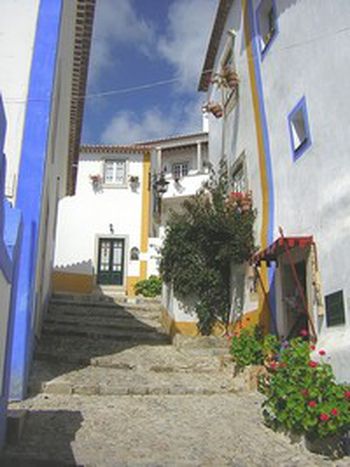
Plunge into Portugal
Published on
Translation by:
Nabeelah ShabbirJourney to the southwest of the European continent in quest of ancient villages and avant-garde buildings
Although Portugal has experienced radical economic and social changes in the last few decades, it still maintains a more raw, ancient side. Villages enveloped by ocean winds, virgin beaches and the unmistakeable perfume of the eucalyptus make it a special land, in which you absorb yourself without any stress.
Standing adjacent to Spain like a precious stone, it is a country with huge historical and cultural wealth, natural wonders and an immense balcony upon the ocean. Here, the perfume of the Atlantic mixes with that of the excellent local gastronomy, watered down by two very distinct wines, which appear to reflect the double soul of this country: the warm, melancholic port wine, and the vinho verde (green wine), fresh and unique in its genre, like Portugal itself. Those who want to visit this country should take their time planning it. Take comfortable shoes if you have a spirit of adventure. Above all, make sure you have a car which can handle the steep slopes of the Monchique hills, roof of the Algarve in the south.
Porto and Lisbon, pearls of the sea
Porto is without doubt one of the most singularly fascinating cities in Portugal. It looms large over the Ribera del Duero wine-making region, the only corner of solace in a city which lacks urban equilibrium and suffers from the intense density of traffic. An intricate labyrinth of narrow streets and steep lanes lead to the heart of the picturesque neigbourhood of Ribeira. Its rapid descent leads you towards the river, where you can enjoy the view of the Don Luis I bridge from numerous little fish restaurants. Constructed by a protege of Gustav Eiffel, this enormous iron beauty connects the neighbourhood with the wine cellar zone where the Vinho do Porto is produced.
Almost all Portuguese roads wind around inside the country, weaving in between tiny little towns and green zones. The ocean is a constant attraction though, providing near-obligatory diversions during a drive. If you are heading towards Lisbon from the north, don't miss out on seeing the westernmost point of Europe, the Cabo da Roca. It's an integral part of the Sintra Cascais Natural Park, and is characterised by a breathtaking view of more than 100 metres of cliffs stretching out in the Atlantic.
The road shortens from here to Lisbon. The city itself is neither imposing nor impersonal. Its inhabitants are rather like those you meet from the smaller towns along the state highway. Here too, in the centre of the capital, the grannies take their siestas at the doors of their homes during the long hot summer afternoons. You can spot them everywhere, from the historic neighbourhood just beside the walls of the San Jorge castle, to the hillside Alfama district, whose little white houses are crammed together, forming a ball of stairs and narrow lanes, animated by night with the sounds of the popular Fado folk music.
Lisbon lives through its cafés, the tingling activity in its streets, its old-school bars and a neighbourhood which struggles between traditional and avant-guarde identity. Here, between the little artist workshops and cheap bars, time is made for new spaces of artistic creation.
Until the 'ends of the earth'
Leaving Lisbon behind, we move up to the extreme south-western point of Portugal, to Cabo de St. Viciente. Today it is still described as 'the end of the earth', from where explorers once set sail in voyage of new terrain. To enjoy the sunset from behind the little lighthouse, from where the sun lowers to submerge within the waters which smash violently against abrupt rock faces, it is worthwhile to head towards another equally unique and enchanting place – the Ponta de Sagres.
This huge block of rock sticking out into the sea is commonly described as a huge finger pointing over the ocean to far away lands and friends, until Brasil. When the sun sets and the Atlantic appears to savour a relief of quietude, the many European surfers populating the beaches make a beeline for the little town of Sagres to have a drink, mingle and listen to music long into the night at the Agua Salgada bar - which serves exceptional fruit milkshakes.
Those who do make it to Portugal 'have to accept that you have lost your way and must try and find a way back,' Nobel Literature prize-winner José Saramago once wrote. 'Alternatively, you can persevere until you manage to find new ways out of this world. There's no better way of doing it.'
Translated from Portogallo road



